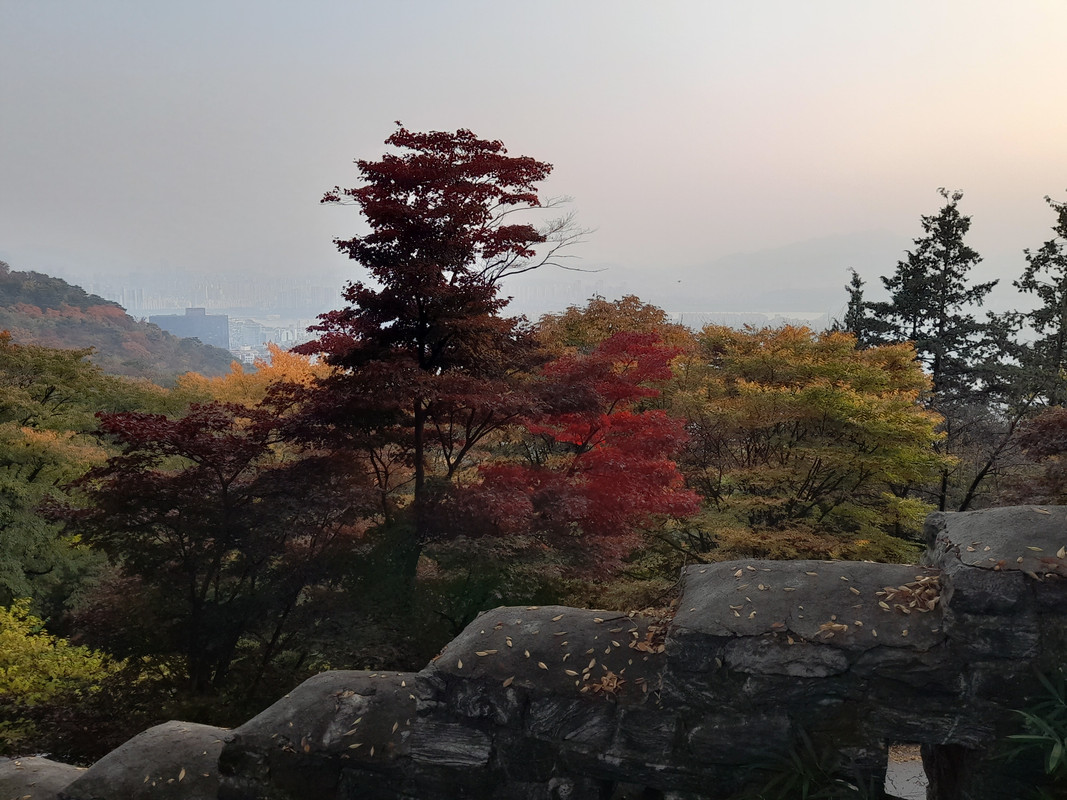Korea Move: Problem Seoul-ving

Image by Cleo Gravett
Cleo Gravett grapples with the newfound surprises of life in South Korea as an international student. Learning the lingo and dealing with differences of teaching styles prove to be a challenge Cleo takes in her stride.
Midterms have mostly finished on the campus of Ewha Womans University and students across the university have finally emerged from dark revision caves, onto a campus bestrewn with trees the colour of bright red tteokbokki and yellow boiled egg yolks. Such a sight is enough to draw people to campus, even if just for a walk, as the vast majority of classes are still operating exclusively online, apart from those with a practical element. For example, my housemate is taking a ceramics class and I’d love to see how a Zoom recreation of that iconic “Ghost” scene would work. However, I’m unlikely to enter an Ewha classroom until 2022.
Despite the monotony of sitting at my laptop for hours (a slog with which we are all now well acquainted), my classes themselves are a mixed bag. I take four modules: two in my “major” of English Literature, one in Film, and one that’s a heady soup of law, business, economics, international relations, philosophy and politics. This last class is one of my favourites; it’s broadened my cultural perspectives and increased my consciousness of the intricacies of current affairs. The lecturer is an engaging encyclopaedia of case studies, and as my only asynchronous class, it’s easy to tailor around the rest of my workload, which often falls in a glut in the middle of the week. It has no seminars, only prerecorded lectures and discussion board posts, and in the recent midterm I even had some multiple choice questions — oh joy!
This last class is one of my favourites; it’s broadened my cultural perspectives and increased my consciousness of the intricacies of current affairs.
I, a literature student accustomed to writing large essays in small amounts of time, could hardly comprehend such luxury. Assessments here are more frequent; in Exeter, I only ever had summer exams but here there are extensive assessed individual and group tasks to complete each week alongside live classes.
A big thing to keep in mind when studying abroad (particularly in Asia) is the potential that you will be graded on a curve, your grade being relative to those of your classmates to encourage competition. That being said, a pleasant culture shock I’ve encountered is the coffeeshop study culture that exists in Korea, and having many cafes open late (most until 10pm, some open 24 hours) definitely makes it easier to tackle the hefty piles of work.
With the intention of improving my conversational skills, I branched out into the world of K-Dramas, making the grave mistake of beginning with Reply 1988…
My Korean language proficiency is coming along… albeit 매우 느리게 (very slowly). I’m lucky enough to have clicked with a group of Korean girls from one of my classes and they are helping me alongside a dusty old workbook I bought. The limited classes offered by the university filled up instantly in the first-come-first-served feeding frenzy of class selection, occurring at 1am one morning when I was still in the UK. With the intention of improving my conversational skills, I branched out into the world of K-Dramas, making the grave mistake of beginning with Reply 1988: a charming and highly acclaimed drama set, as you can probably guess, in 1988. On my first foray into using what I’d learned, I was politely informed by my friend that Reply 1988 is full of so much outdated slang that she can hardly understand it herself, meaning that I’ve essentially been strutting around Seoul talking like Austin Powers. Not so groovy, baby.
Editor: Ryan Gerrett


